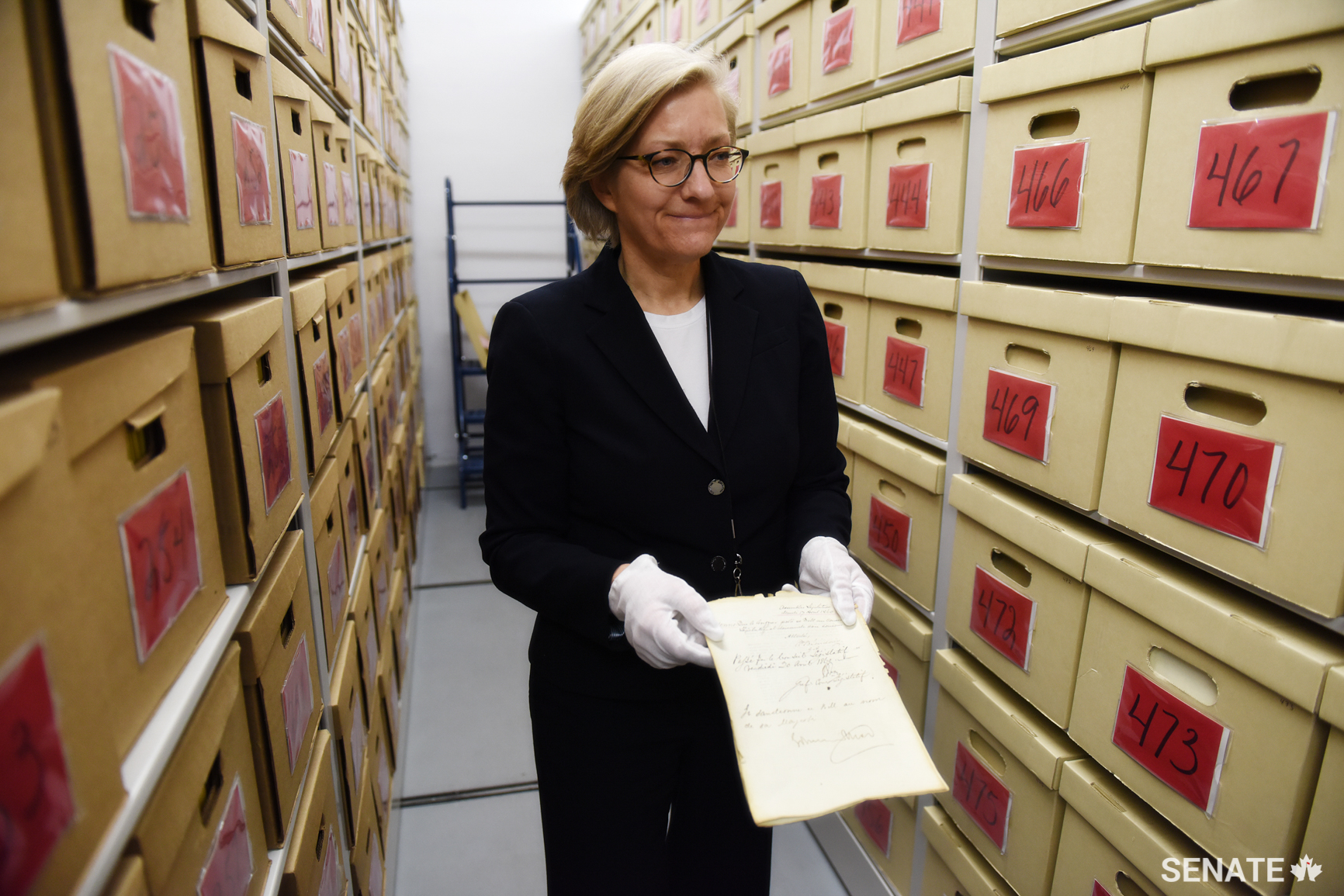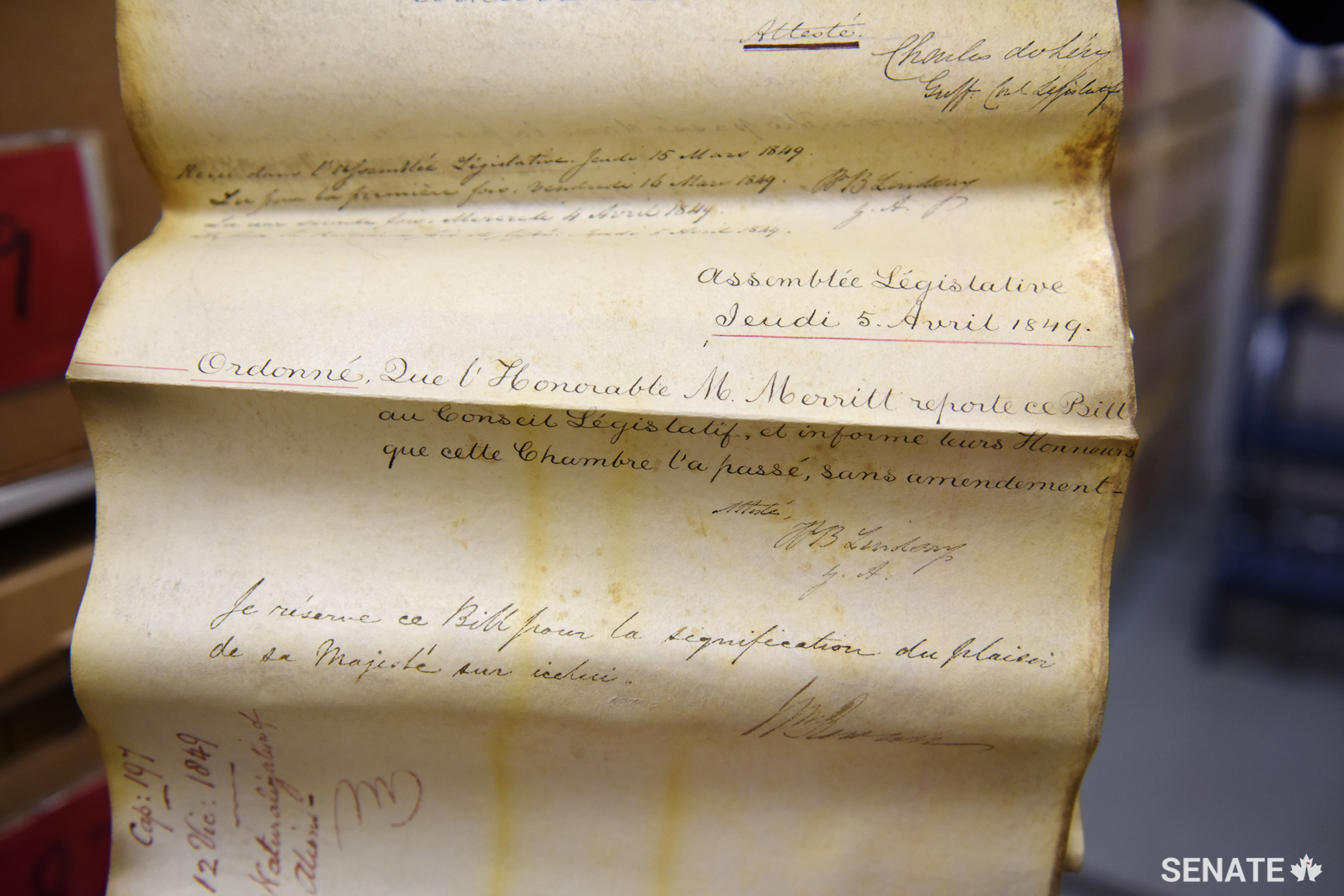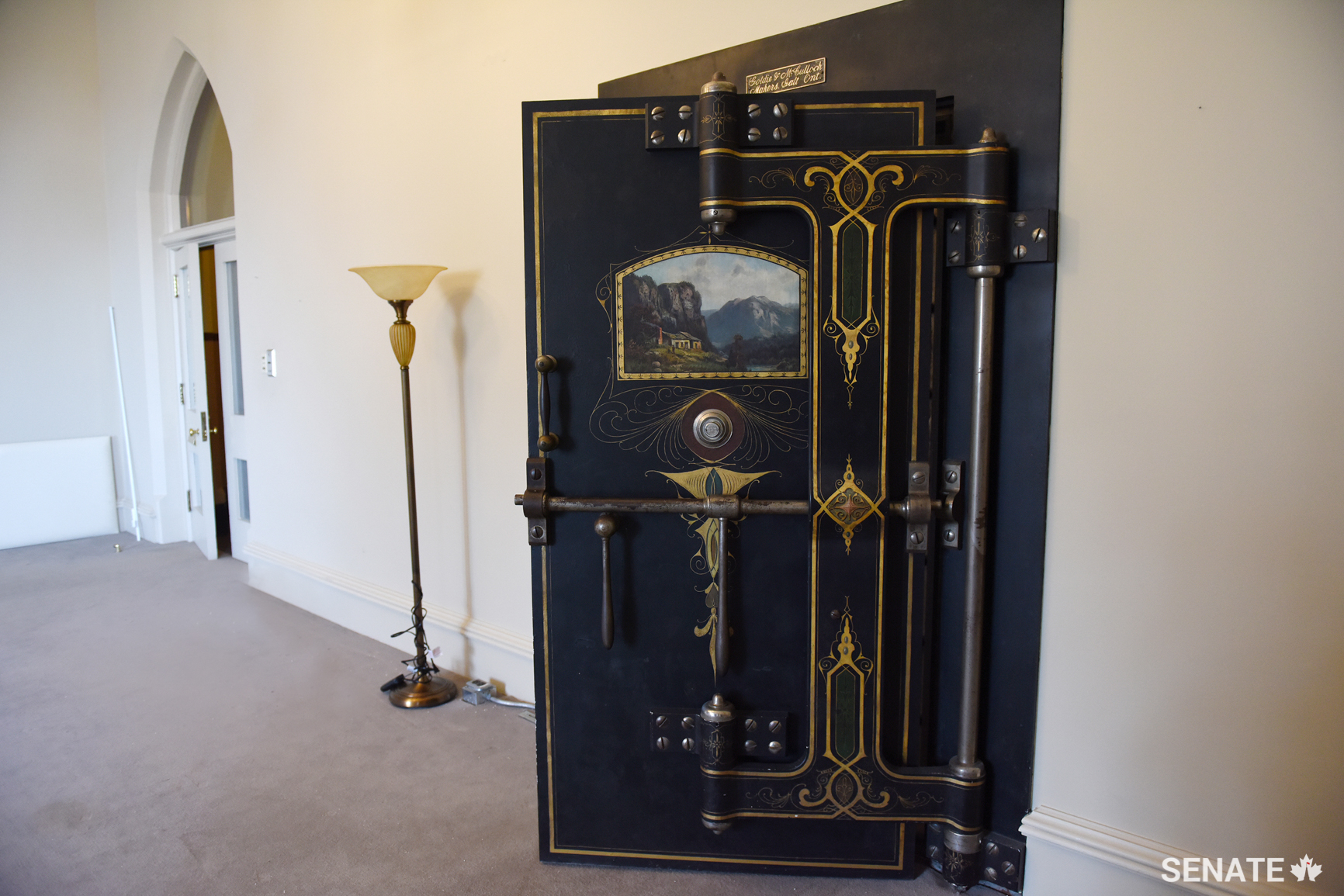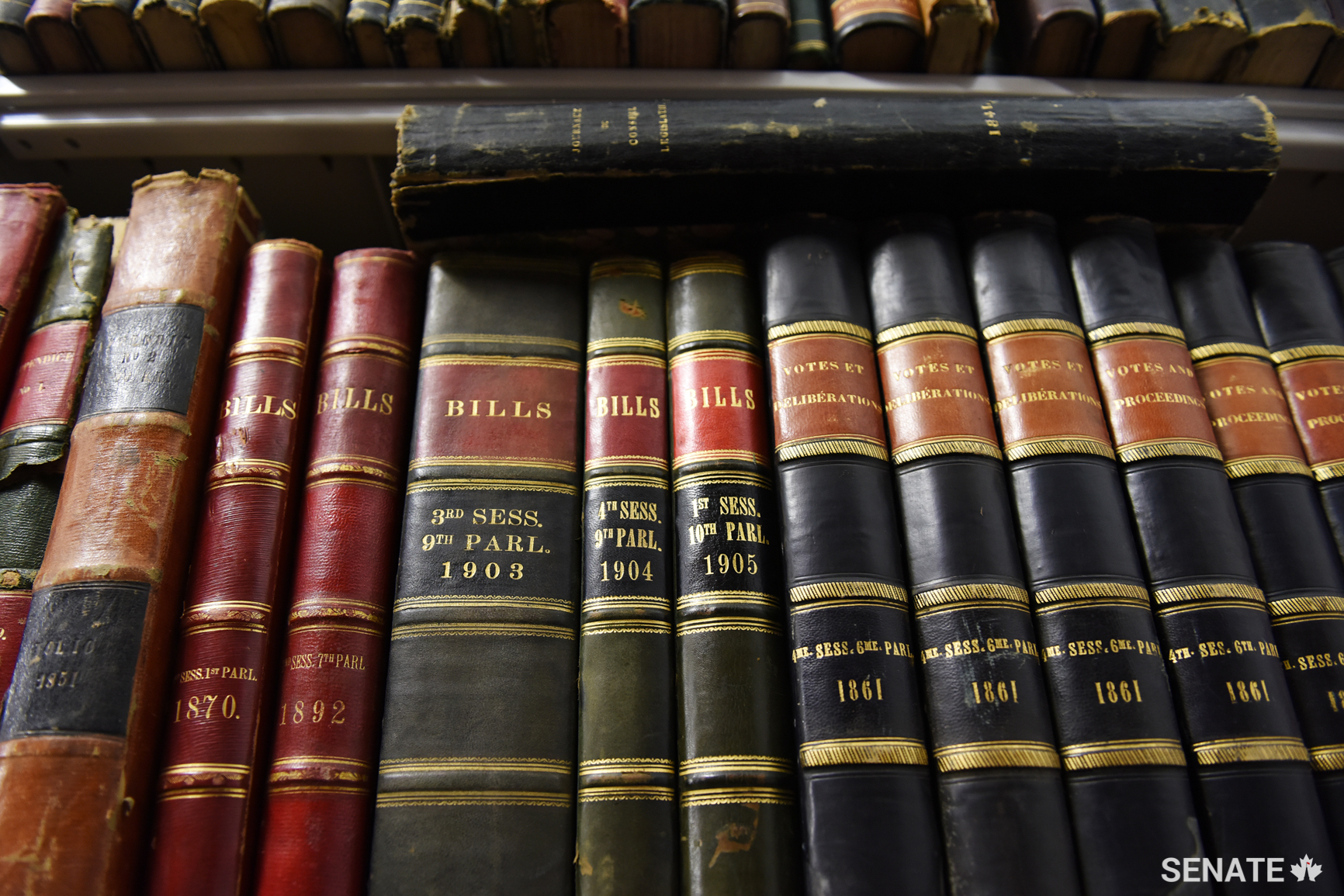Senate is custodian of priceless pieces of Canada’s history

It’s almost poetic that Canada’s oldest surviving original act is a law about how newcomers become Canadians.
The Naturalization of Aliens Act of 1849, handwritten on yellowed parchment, is stored in the Senate of Canada archives in an acid-free box on a shelf surrounded by other boxes, deep in the heart of Canada’s Parliament.
“This is the oldest piece of legislation that we have,” said Senate archivist and chief of information management France Bélisle, who is responsible for conserving Parliament’s historic documents and managing access to them, on behalf of the Clerk of the Senate and the Clerk of the Parliaments.
“It is the Naturalization of Aliens Act. So this is the ancestor of the Citizenship Act.”
Its edges are brown, evidence of damage caused by a fire that destroyed the Parliament building of the United Province of Canada (the jurisdiction that would become Quebec and Ontario when Canada was created in 1867), which was then located in Montreal.

The Naturalization of Aliens Act was passed on April 5, 1849 by the legislative assembly. Fire gutted the Parliament building on April 25.
The Senate archives are housed in vaults in the Centre Block, directly below the Red Chamber. Each room is the size of a two-car garage with metre-thick stone walls. This treasure trove of Canadian history is locked up behind a thick metal door with a combination dial-lock — the kind you’d see bank robbers use in a movie to crack open a safe.
Custody of the original acts is a Senate responsibility based on the Publication of Statutes Act that makes the Clerk of the Senate the Clerk of the Parliaments. It is this addition to the title that makes the incumbent the custodian of all acts passed by the Parliament of Canada (and its previous legislatures going back to 1792).
The archives is comprised of two series of documents — the original acts and the records of the Senate administration.
“What we can say is that this is the most important legal series of archives that exist in Canada. We have only one copy. This is inestimable,” Ms. Bélisle said.
In one vault, more than 1,200 brown cardboard archival boxes line the shelves. Each box has a red, numbered label. An index tells her team the content of each box.
A second vault, also containing 1,200 boxes, houses the Senate’s rare books collection, including leather-bound volumes of bills debated in Parliament, debates of the Legislative Council and the Legislative Assembly of Upper and Lower Canada, bills and account books, among others.
Members of the public can access the information in the archives, but the documents themselves are off limits. Researchers are required to email a detailed request to Ms. Bélisle or her team, who track down the information and prepare a report to send back to the researcher. This way, the records are accessible to the public, but the number of people handling the actual documents is limited.
Like the Senate Chamber, which will relocate to the Government Conference Centre to allow for a rehabilitation of the century-old Centre Block, the Senate archives will also find a new, temporary home.
Approximately 20% of their contents will be transferred to an unused vault in the nearby East Block. The remainder will be housed in a location away from Parliament Hill.
Parliament’s priceless historical records will be kept safe for future generations of Canadians.





